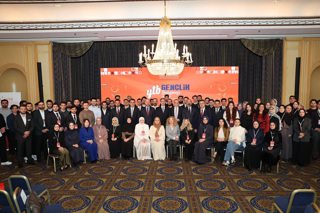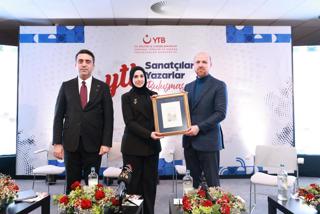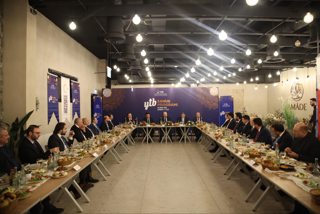This Time It Is Our Women Making Their Way to Germany
Cuma, Mart 8, 2024.png)
In late ‘60s, German employers began to demand female employees from Türkiye for electronics and textile in particular. This was because women were paid less and their fingers were a better fit for fine work. This caused an interesting development for Turkish immigration. In some families, women migrated to a foreign land while those remaining were husbands, fathers, and brothers.
“It was not as abundant as it is now. There was scarcity and poverty.”
Summing up the childhood and youth years of Ayşe Alyüz, who was born in the village of Karakadı, İnegöl in early ‘40s, the aforementioned sentence explains why she set off for Germany. First her husband moved to Germany. Then it was her turn in 1968. They were like a fish out of water. Language was the first major barrier to them. Since his husband went to work early in the morning and was back home late at night, it was her who had to do the daily shopping from time to time. “One day, I needed some bread. The kid was with me. I cut the bread into pieces, took the crumbs with me to the grocery store and said: “I want to buy this.”
Fortunately, there were Turks where they resided. They made friends before long and began to gradually speak German to the extent of meeting their essential needs. With her husband serving as a railway worker, Ayşe took a job a few years later in the metal department of a factory that manufactured water clocks. It did not take long for her to adapt to the things. She got the job. As long as I had a job... It was not a rose garden at all for sure. “We did not hear any call to prayer, first of all. I, for sure, did my prayers. I never skipped fasting when I was there. Neither did my husband. There was a prayer room in the factory. The Turks would quickly have their meal so they go and perform the noon prayer during the lunch break. The foremen said: “Good for Turks: They both do gymnastics and pray.”
While Spanish, Italian, and Greek workers manufactured no more than 1,000 pieces a day, Ayşe manufactured 1,500 and then 2,000 pieces a day. This caught the attention of other workers first, and then the foreman. While she was preoccupied with her work one day at the line, she felt a hand touching her shoulder. It was the hand of the boss. Ayşe then saw her salary doubled. “I never betrayed my job.” She went to work on time, always kept her machine clean, and worked hard. “We worked hard and we made do. We lived in a tiny house. A room and a kitchen. Once we had kids, we sent them to Türkiye so we make just a little bit more. Mark was the currency in Germany back then. We worked harder and harder. And yet we could make only 900 or 1,000 Marks. One of us was spending the whole salary on power, water, and transportation costs. The other one was saving.”
So much so that they usually hit the road early in the morning so as not to give money and made it to the workplace after walking for no less than half an hour or forty minutes. So, what did they endure such difficulties for? To own a house... The money they made in a foreign land was spent by Ayşe’s father-in-law to build a house in their homeland. Once they were on a leave to visit their homeland once a year, they would forget about the exhaustion of the whole year as they saw their house built brick by brick and floor by floor. Nine years went by. When they finally built the house with a roof over their head, it was time for Ayşe to return. She refused even though the foremen of the factory insisted on her not going back to Türkiye. She could not stand the longing for her kids. She could take her kids with her but her father-in-law did not want to break away from his grandchildren.
Now Ayşe talked to her children and grandchildren about those days spent in a foreign land. Along with the memory of water clocks that now decorate the display case of her living room, which she took with her upon permission from the foreman of the factory where she worked for over nine years.



